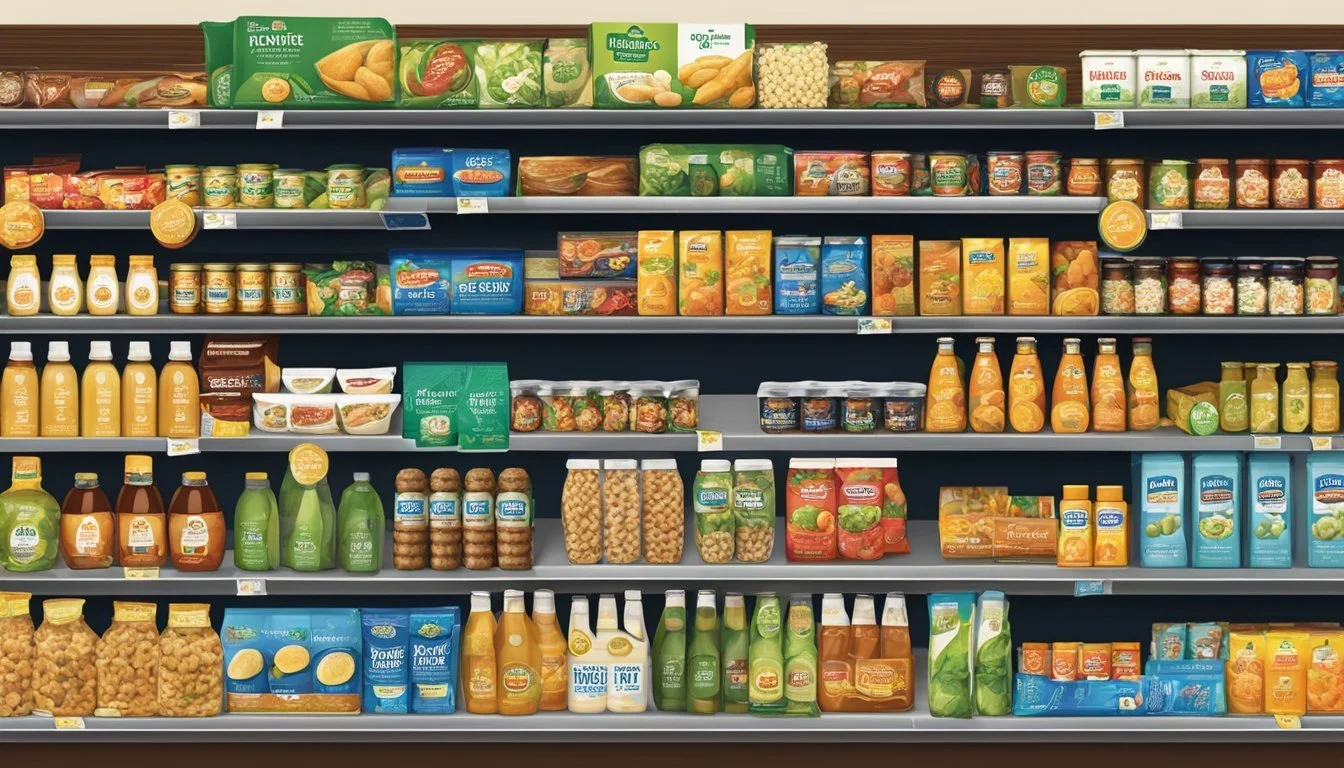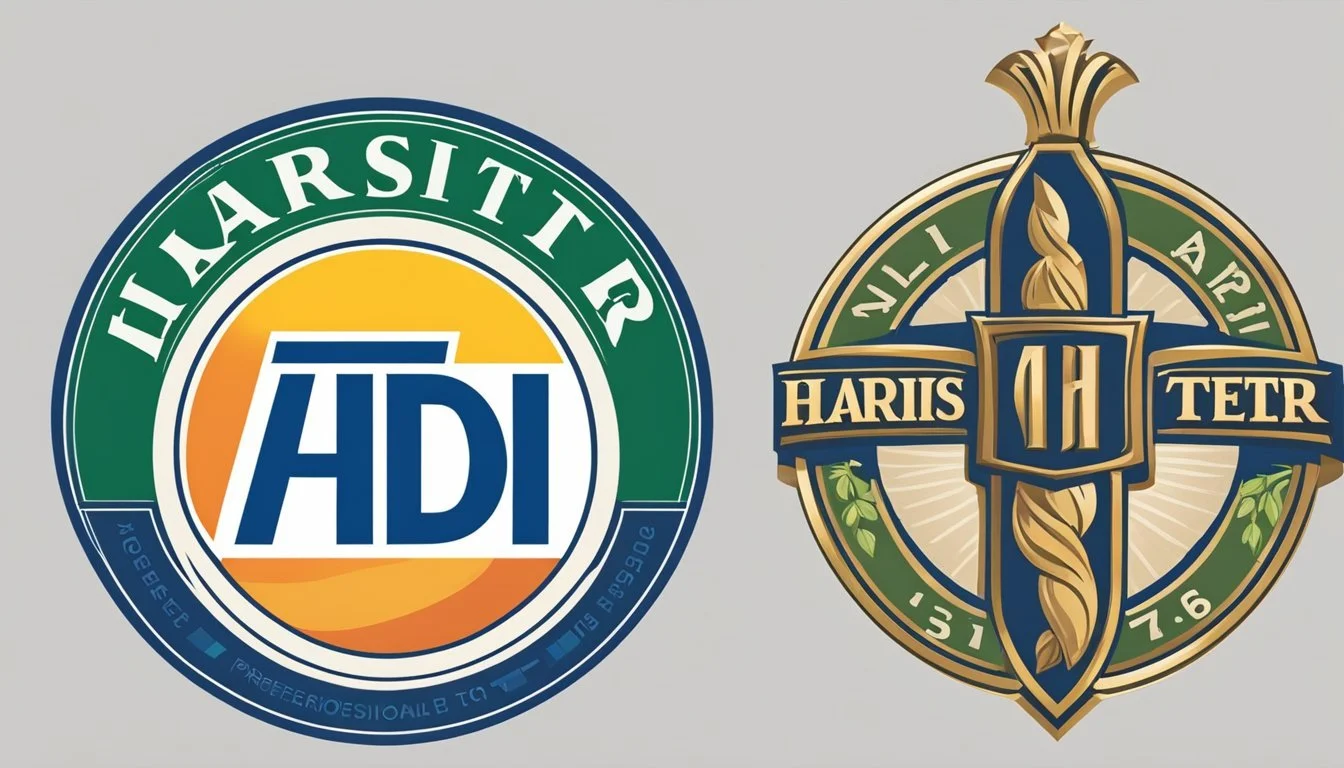Aldi vs Harris Teeter
Comparing Prices, Quality, and Shopping Experience
Part of Our Grocery Store Guide with Details on Aldi and Harris Teeter
When considering where to shop for groceries, price and quality are often the key factors for consumers. Two well-known stores that often come into the comparison are Aldi and Harris Teeter. Aldi has built a reputation for its cost-effectiveness, claiming to offer significant savings on grocery bills. It is known for its no-frills shopping experience, offering a range of products that often undercuts competitors in price.
On the other hand, Harris Teeter is perceived as a more conventional supermarket, providing a wider variety of brands and a more traditional shopping experience. With its home in the southern United States, it's often appreciated for its specialty in regional products and the frequent deals available through its VIC (Very Important Customer) program.
Determining which store is 'better' may not be a straightforward answer, as it depends on individual preferences. Aldi may be the go-to for those looking to stretch their dollar further, while Harris Teeter can be preferred by those who value a broader selection and specific promotions. The debate between Aldi and Harris Teeter extends beyond just pricing, encapsulating factors such as store brands, product quality, and shopping experience.
History and Background of Aldi and Harris Teeter
Aldi's Beginnings: Aldi, short for Albrecht Discount, originated in Germany with the Albrecht family's first discount grocery store in 1961. Its principles have always centered around offering high-quality goods at low prices. Aldi expanded to the United States in 1976, opening its initial store in Iowa. Fast-forward to the present day, Aldi operates a substantial number of stores across the country.
Key Aldi Facts:
Founded: 1961 in Germany
U.S. Expansion: 1976
Headquarters: Batavia, Illinois
Store Count: Over 1,600 in the United States
Harris Teeter's Story: Harris Teeter traces its origins to two entrepreneurs, William Thomas Harris and Willis L. Teeter, who opened separate grocery stores in North Carolina during the 1930s. The chain, known as Harris Teeter Neighborhood Food & Pharmacy, came into being when these two stores merged in 1960. Harris Teeter is celebrated for its customer service and neighborhood appeal and operates in several South Atlantic states and Washington, D.C.
Key Harris Teeter Facts:
Founded: 1960 (from a merger of two stores from the 1930s)
Headquarters: Matthews, North Carolina
Locations: 259 stores across seven South Atlantic states and Washington, D.C.
The business models of both companies reflect their origins: Aldi is well-known for its efficiency and cost-saving measures, often reflected in its no-frills store design. Harris Teeter emphasizes a more traditional shopping experience, focusing on customer service and community involvement.
Store Locations and Accessibility
Aldi and Harris Teeter have distinct geographic footprints in the United States. Aldi, recognized for its budget-friendly options, has a strong presence with over 1,900 stores across the country. Their strategic location plan often positions them within communities that cater to a diverse range of shoppers looking for value. Aldi stores are primarily found across the Midwest and the East Coast.
Harris Teeter, on the other hand, operates in a more concentrated manner with approximately 250 stores. They focus on the southeastern and mid-Atlantic regions, including Washington D.C., Delaware, Florida, Georgia, and notably on the East Coast. Harris Teeter is known for its more premium offerings and services.
Both chains ensure accessibility, but Aldi’s broader location strategy may make it more accessible to a wider audience. It's notable that Aldi stores are generally smaller than traditional supermarkets, which can facilitate quicker shopping trips for customers.
Here is a brief overview of their presence on the East Coast:
Aldi Harris Teeter Stores Many Fewer Scope Regional/National Mostly Southeast & Mid-Atlantic
While Harris Teeter's locations might be less widespread, they are often found in affluent neighborhoods with a focus on high-quality products and customer service. Accessibility for both brands is further enhanced through their respective online presence and delivery options, adapting to the convenience needs of modern consumers.
Price Comparison
In the competitive landscape of grocery retailers, Aldi and Harris Teeter present contrasting strategies in pricing, reflecting their respective positions in the market.
Overall Pricing Strategies
Aldi is known for a pricing strategy that targets cost-conscious shoppers, positioning itself as a budget-friendly option. It achieves this through a streamlined selection of products, many of which are store brands, and efficient store operations. On the other hand, Harris Teeter emphasizes a broader range of products including premium items, catering to a different market segment willing to pay a bit more for higher quality.
Discounts and Saving Opportunities
Both Aldi and Harris Teeter offer various saving opportunities, but through different avenues. Aldi's discounts are often reflected directly in the low unit pricing on shelf tags. Harris Teeter provides additional savings mechanisms through periodic promotions, digital coupons, and a VIC card that offers exclusive discounts to cardholders.
Cost Analysis of Store Brands vs. Name Brands
Aldi: Known for its store brand items such as Simply Nature, Aldi typically undercuts national brands on price without significantly sacrificing quality.
Harris Teeter: While also offering its own store brand, the Harris Teeter brand may be priced higher than Aldi's equivalents but is often cheaper than well-known name brands like Market Basket or Great Value.
Price comparison across other retailers:
Walmart and Food Lion compete more closely with Aldi in terms of price.
Safeway, Wegmans, and Lidl tend to have higher price points, more in line with Harris Teeter.
Target and Giant fall in between these two groups.
Premium stores like Whole Foods have higher prices across the board.
Costco and Sam's Club offer bulk purchases that may reduce the overall unit price.
Regional chains like Kroger, Publix, and Dollar General vary widely but often strive to stay competitive with Aldi and Walmart pricing.
Product Assortment and Quality
Choosing between Aldi and Harris Teeter often comes down to the range and quality of products they offer. Both stores cater to different shopping preferences with Aldi focusing on cost-efficiency and Harris Teeter emphasizing a more diverse selection.
Fresh Produce and Meats
Harris Teeter is known for providing a wide variety of fresh produce and meats. Their selections often include both conventional and organic options. In particular, Harris Teeter's meat departments are praised for quality, carrying especially tender beef, as they are part of The Kroger Co. network.
Variety: High
Meat Quality: High
In contrast, Aldi opts for a more streamlined assortment. Their meat and produce sections are smaller, but Aldi still maintains a commitment to quality. Their model ensures that the available items are fresh and meet consumer standards, often sourced from the same suppliers as other larger grocery stores.
Variety: Moderate
Meat Quality: Satisfactory
Organic and Specialty Offerings
Both stores offer organic and specialty products, but Harris Teeter tends to have a more extensive selection. Harris Teeter caters to a clientele that seeks a one-stop shop, which includes high-quality organic products. Aldi, while limited, includes organic choices through its Simply Nature brand, providing a cost-effective alternative to premium priced organics.
Harris Teeter
Organic Selection: Wide
Specialty Items: Diverse
Aldi
Organic Selection: Curated
Specialty Items: Limited
Store Brand Quality
Aldi's strategy includes a strong focus on their store brands, which are often compared favorably to name-brand products in both price and quality. In fact, some Aldi brand products are considered better than the originals they mimic. Harris Teeter, while also providing a house brand, is more reliant on a mix of national brand products alongside their Harris Teeter brand items.
Aldi: Often equal or superior to name brands
Harris Teeter: Competitive with national brands
When evaluating these two establishments, shoppers should consider both availability of products and the importance of quality in their budget and dietary preferences.
Customer Experience and Service
When comparing the customer experience and service between Aldi and Harris Teeter, shoppers consider several aspects, including checkout efficiency, staff helpfulness, and in-store amenities. Each of these factors plays a crucial role in shaping the overall shopping experience.
Checkout Efficiency
Aldi operates with a distinct checkout approach, focusing on speed and efficiency. Items have multiple barcodes to expedite scanning, and customers bag their own purchases, which can lead to shorter wait times at the register. Harris Teeter, on the other hand, often implements traditional checkout lines staffed by clerks who bag groceries for customers, potentially making the process feel more personal but sometimes less expedient in comparison.
Staff Helpfulness
Customer service at Harris Teeter is frequently highlighted for its responsiveness and attentiveness. Staff members are generally available for assistance and seem well-trained to offer help with product location and other inquiries. At Aldi, the staff presence on the floor is usually limited due to the store's streamlined staffing model, which may result in less immediate help available, but does not necessarily reflect the quality of service the staff provides when present.
In-Store Amenities
Harris Teeter stores commonly offer a wider range of amenities, including deli counters, bakeries, and floral sections, providing a more traditional grocery shopping experience. Aldi keeps its store layouts simple with fewer specialty sections, but this can also contribute to the ease of shopping and reduced complexity for customers who prioritize straightforwardness and efficiency.
Brand Reputation and Customer Perceptions
In discussing Aldi and Harris Teeter, brand reputation and customer perceptions play a significant role. These factors often inform a customer's choice of grocery store, highlighting the importance of market surveys and how these stores stack up against their competitors.
Market Surveys and Customer Ratings
Surveys and ratings are a strong indicator of how well a grocery store is perceived in the market. Aldi often scores highly in terms of customer value. For example, a Retail Feedback Group study rated supermarket customer satisfaction, with Aldi receiving a top score of 4.27 out of 5, slightly trailing supermarkets' overall satisfaction rating of 4.31. Customers have praised Aldi for its Simply Nature brand among others, reflecting the store's reputation for offering quality at a lower cost. On the other hand, Harris Teeter, which is part of the Kroger family of supermarkets, typically offers more premium, albeit costlier, options and is known for its customer service and clean stores.
Competitor Comparison
When contrasting Aldi and Harris Teeter with other grocery stores, different strengths emerge. Aldi's business model allows it to remain competitive on price, typically 6% to 109% cheaper than Harris Teeter, creating robust competition for price-focused chains like Walmart's Great Value and Lidl. Harris Teeter, while more expensive, competes closely with brands like Publix and Whole Foods in terms of quality and customer experience. Other players in the grocery market such as Target, Food Lion, and Safeway offer varied levels of competition regarding price points and product range, which might influence customer perceptions toward Aldi and Harris Teeter. Competitor brand awareness can also affect customer choices, with surveys noting high brand awareness for both stores, though Aldi slightly trails behind Publix in this regard.
Convenience Factors
When considering Aldi and Harris Teeter, shoppers often weigh the convenience of store hours, online shopping, and the availability of store brand items.
Store Hours and Online Shopping
Aldi tends to offer relatively uniform store hours that are convenient for most shoppers, typically open from late morning until early evening. Harris Teeter, on the other hand, often provides more extended hours, with many stores being open late or even 24 hours, catering to varying customer schedules. Both grocery stores have ventured into online shopping; Aldi offers an online shopping experience via delivery partnerships, while Harris Teeter provides the added convenience of pickup services, aligning them with competitors like Target and Amazon. Shoppers value the ability to shop online for their groceries, making accessibility outside of standard store hours a compelling benefit.
Aldi: Late morning to early evening
Harris Teeter: Extended hours, including 24-hour locations
Private Label Items Availability
Aldi has gained a strong reputation for its extensive range of store brand items that typically offer significant savings compared to national brands. Their emphasis on exclusive store brands means that approximately 90% of their products are store brand, providing a consistent and cost-effective shopping experience. In contrast, Harris Teeter also offers a variety of private label products through its HT Traders and Harris Teeter Organics lines, but with a broader mix of national brands alongside. Shoppers at Harris Teeter can expect a balance between store brands and national labels, often tailored to a more upscale shopping experience.
Aldi: 90% store brand items
Harris Teeter: Blend of private label and national brands
Financial and Ethical Considerations
When comparing Aldi and Harris Teeter, consumers often look beyond the price tags. They consider how each store impacts local economies and adheres to sustainability and ethical sourcing practices.
Economic Impact on Local Markets
Aldi is generally known for its cost-saving approach, offering prices that can be significantly lower than Harris Teeter. For budget-conscious shoppers, Aldi might contribute to substantial annual savings. The presence of an Aldi store in a community often encourages competitive food prices, which can be particularly beneficial for residents looking to stretch their grocery budgets.
In contrast, Harris Teeter, while potentially more expensive, may support local economies differently. As part of the Kroger family, it may be perceived to have a larger footprint in certain markets which can influence local business dynamics.
Sustainability and Ethical Sourcing
Aldi emphasizes sustainability through various initiatives. They have pledged to reduce greenhouse gas emissions and offer a selection of organic and sustainably farmed products. Their approach to ethical sourcing includes responsible packaging and fair labor practices.
On the other side, Harris Teeter is also making strides in ethical sourcing, featuring a range of natural and organic products, comparable to high-end grocers like Whole Foods, which might appeal to ethically conscious consumers. Harris Teeter's parent company Ahold Delhaize has set sustainability goals, aiming to increase the share of sales from healthier products and reduce food waste.
Conclusion
When choosing between Aldi and Harris Teeter, customers must weigh their priorities. Aldi offers budget-friendly prices, generally ranging from 6% to 109% cheaper than Harris Teeter on various products. Their low-price business model is designed for cost-conscious shoppers aiming to save money without a strong emphasis on brand names.
On the other hand, Harris Teeter is recognized for its higher quality offerings, with some products backed by the FDA for their standards. Shoppers seeking a wider variety of gourmet and organic options might prefer Harris Teeter, despite the higher price point. They may also benefit from a more extensive deli and fresh prepared foods section.
In conclusion, the decision rests on whether one's priority is saving money or enjoying a broader selection of premium products. Aldi excels in cost-saving, whereas Harris Teeter stands out for quality and variety. Shoppers must decide what factors—price, quality, or variety—are most important for their household.







